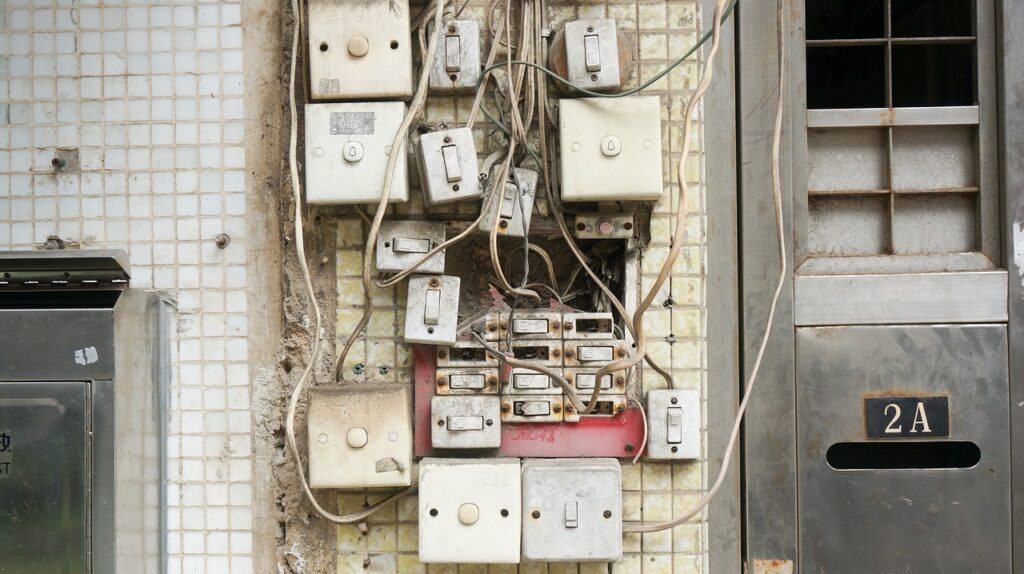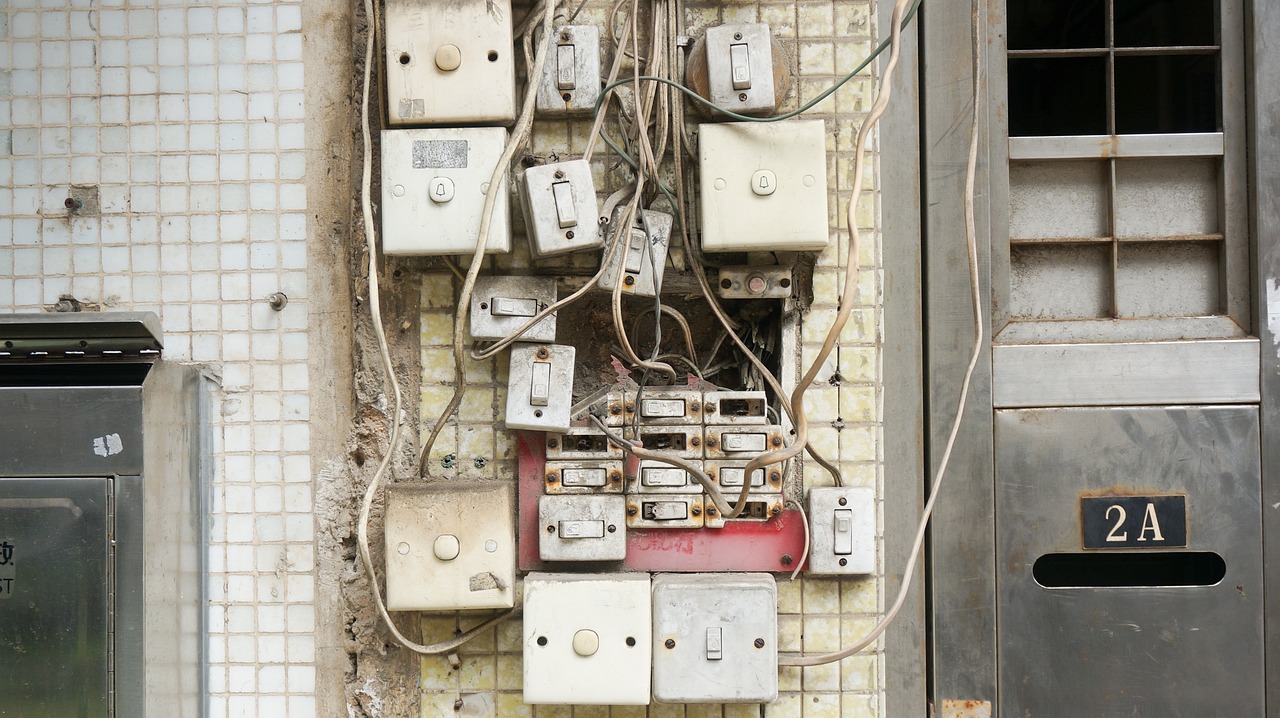Are you planning on rewiring your home or business? If so, it’s important that you understand the risks associated with not having a detailed contract with your electric contractor. Without a contract, you could be exposing yourself to potential disputes, legal issues, and even safety hazards.
In this article, we’ll explore the importance of having a detailed contract with your electric contractor when rewiring your property. We’ll discuss the key components that should be included in such a contract, such as compliance with local regulations and codes, clear payment terms, and warranties and guarantees.
By understanding the risks and taking the necessary precautions, you can ensure that your rewiring project is completed safely, efficiently, and to your satisfaction.
Understanding the Risks of Rewiring without a Contract
If you’re thinking about rewiring your home without a contract, you’re taking on a huge risk that could end up costing you a lot of money and headaches in the long run.
When you hire an electric contractor without a detailed contract, you’re assuming all the liability if something goes wrong during the rewiring process. It’s important to remember that electricians are professionals who deal with potentially dangerous situations every day. Without a contract, you risk having to pay for any damages that may occur during the rewiring process, including personal injury or property damage.
In addition to contractor liability, safety measures are also a major concern when it comes to rewiring your home. Without a detailed contract, you may not be able to ensure that the electrician is following proper safety procedures. This can put you and your family at risk for electrical fires or other dangerous situations.
A detailed contract will outline the specific safety measures that the electrician will take during the rewiring process, giving you peace of mind that your home is in good hands. So, before you begin any rewiring project, make sure you have a detailed contract in place to protect yourself and your loved ones.
Key Components of a Detailed Contract with an Electric Contractor
Essential components for a comprehensive agreement with an electrical specialist include clear deadlines, itemized costs, and a detailed description of the work to be completed.
A project timeline should be established to ensure that the work is completed within a reasonable timeframe. It’s important to clearly outline the scope of work to be performed, including specific tasks and any necessary materials.
In addition to the project timeline and scope of work, the contract should also include details about the payment schedule. This should include the total cost of the project, any deposit required, and when payments are due.
It’s important to have a clear understanding of the payment schedule before work begins to avoid any misunderstandings or disputes. By including these key components in a detailed contract, you can ensure that the rewiring project is completed efficiently and to the highest standards.
Ensuring Compliance with Local Regulations and Codes
Ensuring compliance with local regulations and codes is a crucial aspect of any electrical project. Failure to do so can result in legal and safety issues. Your electric contractor should be knowledgeable about the local government requirements and codes that apply to your specific project. They should be able to provide documentation demonstrating their compliance with these regulations and codes, such as permits and inspections.
In addition to legal issues, noncompliance with local regulations and codes can also pose safety concerns. By following these regulations and codes, you can ensure that your rewiring project is completed safely and efficiently. Your electric contractor should be able to explain the specific regulations and codes that apply to your project, as well as provide a plan for ensuring compliance throughout the project.
By working with a contractor who prioritizes compliance, you can have peace of mind knowing that your rewiring project is being completed to the highest safety standards.
Mitigating Potential Disputes with Clear Payment Terms
To avoid any confusion or disagreements, you’ll want to make sure that the payment terms for your electrical project are clearly defined and agreed upon by both parties. By doing so, you can mitigate potential disputes that may arise during the project or afterwards.
To ensure clear payment terms, it’s important to establish a payment schedule that outlines when payments will be made and how much will be paid at each stage of the project.
In addition to the payment schedule, you’ll also want to include dispute resolution procedures in your contract. This can help to minimize any misunderstandings or disagreements that may occur during the project.
By having a clear plan in place for resolving disputes, you can avoid costly and time-consuming legal battles. Ultimately, taking the time to create a detailed contract with your electric contractor can help to ensure a smooth and successful electrical project.
Protecting Yourself with Warranties and Guarantees
Don’t get left in the dark! Protect yourself and your investment by securing warranties and guarantees for your electrical project.
A detailed contract should clearly outline the scope of work to be done and the responsibilities of each party involved. This includes the electric contractor’s liability limitations in case of any damages or accidents caused during the project.
Make sure to discuss with your electric contractor the type of warranties and guarantees that they offer. This should include any manufacturer’s warranties and guarantees on materials used, as well as workmanship guarantees.
A workmanship guarantee should cover any defects or issues that arise due to faulty installation or workmanship. By having these warranties and guarantees in place, you can have peace of mind knowing that you’re protected in case of any unforeseen circumstances.

Frequently Asked Questions
How do I choose the right electric contractor for my rewiring project?
When choosing an electric contractor for your rewiring project, consider the contractor’s qualifications and experience. Ask for a detailed project timeline and make sure it aligns with your expectations.
What are some common mistakes to avoid when negotiating a contract with an electric contractor?
When negotiating a contract with an electric contractor for rewiring, avoid common mistakes by clarifying expectations and understanding the legal implications. Be specific about timelines, costs, and scope of work to prevent misunderstandings.
How can I ensure that the electric contractor I hire will follow all safety protocols during the rewiring process?
To ensure compliance and safety measures during the rewiring process, ask the electric contractor about their safety protocols and certifications. Request a detailed plan and regular updates throughout the project to ensure everything is being done correctly.
What happens if the electric contractor discovers unforeseen issues during the rewiring process?
If unforeseen issues arise during rewiring, expect additional expenses and communicate with your electric contractor immediately. Make sure to set clear communication expectations to avoid surprises and ensure the project stays on budget.
Can I make changes to the contract after it has been signed?
You may be able to modify your contract after signing, but it’s best to consult a lawyer to ensure any changes follow legal considerations. Contract modification can have serious implications, so it’s important to proceed carefully.
Conclusion
So, there you have it! The importance of having a detailed contract with your electric contractor when rewiring your home cannot be overstated. Without one, you could be putting yourself at risk of costly mistakes, legal issues, and disputes with your contractor.
By including key components such as compliance with local regulations, clear payment terms, and warranties/guarantees, you can mitigate these risks and ensure that the rewiring process goes smoothly.
So, before you start your next electrical project, make sure to take the time to draft a thorough and detailed contract with your electric contractor. Your peace of mind (and wallet) will thank you!



